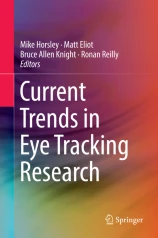The development of eye-tracking-based methods to describe a person’s indecisiveness is not commonly explored, even though research has shown that indecisiveness is involved in many unwanted cognitive states, such as a reduction in self-confidence during the decision-making process, doubts about past decisions, reconsidering, trepidation, distractibility, procrastination, neuroticism, and even revenge. The purpose of our work is to propose a predictive model of a subject’s degree of decisiveness, either “indecisive” or “decisive.” To reach this goal, we needed to extract descriptors that clearly distinguished both states. Using eye-tracking methodology, we then studied the reactions of different subjects in response to several types of stimuli.
Degree of subject’s indecisiveness characterized by eye movement patterns in increasingly difficult tasks
